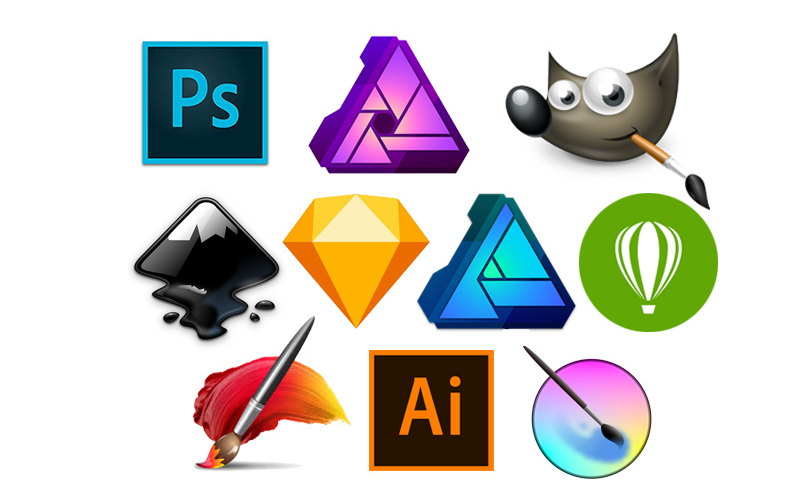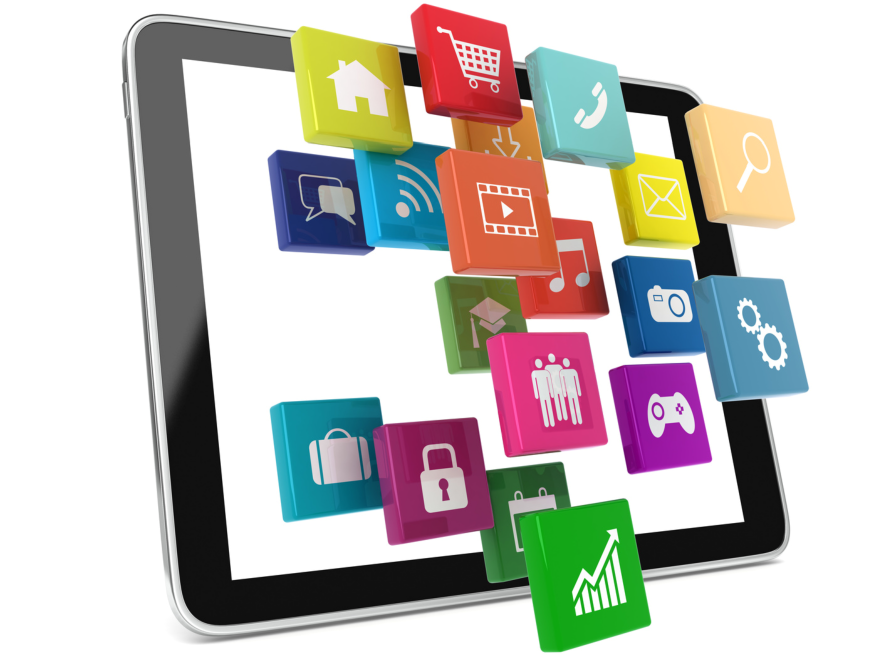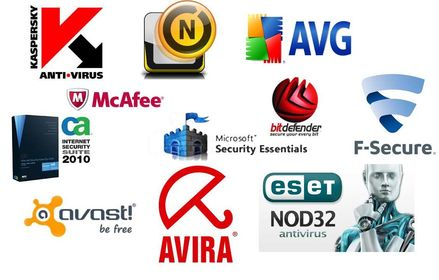What is an Application Software?
Application software refers to computer programs designed to perform specific tasks for users. Unlike system software that manages hardware and provides essential functions, application software caters to diverse user needs. It plays a pivotal role in our daily lives, contributing to productivity, creativity, communication, entertainment, education, and more.
Categories of Application Software
1. Productivity Software
Productivity software is a suite of applications designed to aid users in creating, editing, and managing documents, presentations, and spreadsheets. Word processing software enables efficient creation and formatting of documents, while spreadsheet software facilitates data analysis and management. Presentation software helps in designing and delivering engaging presentations. Notable examples include Microsoft Office Suite, comprising Word, Excel, and PowerPoint, and Google Workspace, ClickUp, and more.
2. Graphics and Multimedia Software
Graphics and multimedia software encompass tools for creating, editing and manipulating visual and audio content. Graphic design software assists in creating visual elements, photo editing software enhances and retouches images, video editing software enables the creation of videos, and audio editing software facilitates audio manipulation. Prominent software packages include Adobe Creative Suite (Photoshop, Illustrator, Premiere Pro), CorelDRAW, and iMovie.
3. Entertainment Software
Entertainment software provides leisure and enjoyment to users. It includes video games, media players, and virtual reality experiences. Video games range from simple mobile games to complex console titles. Media players allow playback of audio and video content, while virtual reality applications immerse users in interactive virtual environments. Notable examples encompass Steam (gaming platform), VLC Media Player, and the Oculus Store for VR experiences.
4. Communication Software
Communication software facilitates interaction and information exchange among users. It includes email clients for sending and receiving emails, instant messaging platforms for real-time text communication, and video conferencing tools for virtual meetings. Microsoft Outlook, WhatsApp, and Zoom are widely used communication software examples, catering to personal and professional communication needs.
5. Educational Software
Educational software supports learning and skill development. E-learning platforms offer online courses and resources, language learning apps aid in acquiring new languages, and educational games combine entertainment with learning. Moodle is a popular e-learning platform, Duolingo is renowned for language learning, and KidPix offers creative educational activities for children.
6. Utility Software
Utility software enhances system performance and maintenance. Antivirus software protects against malicious software, file management tools organize and manage files, and system optimization utilities improve system speed and efficiency. Norton Antivirus, CCleaner, and WinZip fall into the utility software category, ensuring smooth computer operation.
7. Financial Software
Financial software assists in managing personal and business finances. Accounting software helps in bookkeeping and financial reporting, personal finance software aids in budgeting and expense tracking, and tax preparation software simplifies tax filing processes. QuickBooks, Quicken, Zoho, and TurboTax are widely used financial software solutions.
8. Health and Wellness Software
Health and wellness software focuses on fitness, medical reference, and mental well-being. Fitness tracking apps monitor physical activity and health metrics, medical reference software offers medical information and resources, and meditation apps promote relaxation and mindfulness. Fitbit, WebMD, and Headspace are prominent examples in this category.
The Future of Software and Custom Software
In a world that’s perpetually evolving technologically, the future of software holds exciting promise. As we move forward, software development is set to undergo transformative changes, with a special emphasis on custom software solutions. This intersection of innovation and customization is poised to revolutionize how businesses operate, how individuals interact with technology, and how solutions are tailored to unique needs.
The Evolution of Software: A Glimpse into Tomorrow
As the pace of technological advancement accelerates, software is expected to become more intuitive, adaptable, and seamlessly integrated into our lives. Here are a few trends that point toward the future of software:
1. Artificial Intelligence and Machine Learning
AI and machine learning are poised to become integral to software development. From predictive analytics that anticipate user needs to autonomous systems that learn and evolve, software will increasingly adapt and optimize based on data insights.
2. IoT (Internet of Things) Integration
Software will continue to integrate with IoT devices, creating a seamless and interconnected digital ecosystem. This will lead to smarter homes, cities, and industries, enhancing convenience and efficiency.
3. Blockchain and Security Enhancements
Blockchain technology will contribute to software security and data integrity. Decentralized applications and enhanced encryption will redefine trust and security in software solutions.
4. Augmented and Virtual Reality
AR and VR will revolutionize user experiences by merging the digital and physical worlds. Software will create immersive environments for entertainment, training, education, and more.
5. Quantum Computing
Although in its infancy, quantum computing could unlock immense processing power, enabling software to solve complex problems at speeds currently unimaginable.
Conclusion
In a technology-driven world, the pervasive influence of application software is undeniable. It serves as the cornerstone of our digital existence, reshaping our work, creativity, communication, and leisure. The diverse spectrum of application software categories has revolutionized how we engage with information and interact with the digital realm. From empowering productivity and sparking creativity to facilitating seamless communication and immersive entertainment, application software has become an integral part of our lives.
As we stride forward in this dynamic digital landscape, it’s essential to harness the full potential of application software to unlock new avenues of success. To propel your business to the zenith of achievement, we invite you to partner with Ubique Digital Solutions. Together, we can leverage the power of technology to elevate your endeavors and pave the way for a future defined by efficiency and innovation.
FAQs
Q: What is application software?
Application software refers to computer programs designed to perform specific tasks for users, such as word processing, gaming, or communication. Examples include Microsoft Office Suite and Adobe Creative Suite.
Q: How is productivity software useful?
Productivity software aids users in tasks like creating documents, spreadsheets, and presentations. It enhances efficiency and organization in work-related activities.
Q: Can entertainment software include more than just video games?
Absolutely. Entertainment software encompasses video games, media players, and virtual reality experiences, providing diverse avenues for leisure and enjoyment.
Q: Is communication software limited to personal use?
No, communication software serves both personal and professional purposes. It includes email clients, instant messaging, and video conferencing tools for various communication needs.
Q: How does educational software impact learning?
Educational software offers online courses, language learning tools, and educational games to enhance learning experiences. It provides interactive and engaging ways to acquire knowledge and skills.
Q: Why is utility software important for computer maintenance?
Utility software, including antivirus and system optimization tools, ensures the smooth operation and longevity of your computer by protecting against threats and maintaining system performance.
Q: Is financial software suitable for personal and business use?
Yes, financial software serves both personal and business needs. Accounting software helps manage finances for businesses, while personal finance software aids individuals in budgeting and managing expenses.
Q: Can health and wellness software replace traditional healthcare methods?
Health and wellness software complements traditional healthcare by offering tools for fitness tracking, medical references, and meditation. It enhances personal well-being but doesn’t replace professional medical care.

















